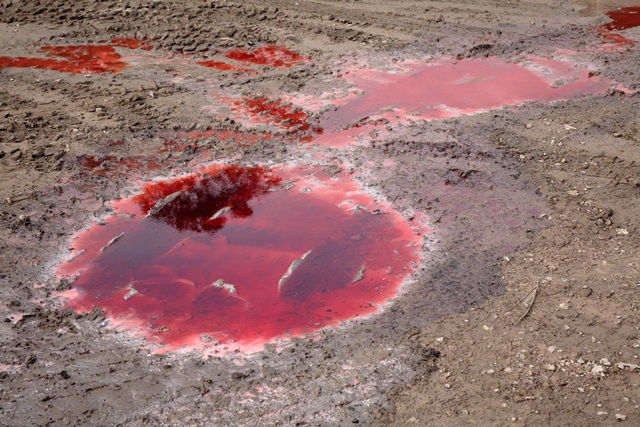
Today the United Nations Economic Commission for Europe (UNECE) expert group tasked with elaborating safety guidelines for oil terminals concluded its second meeting, which was held in Saint Petersburg, Russian Federation. At the meeting experts discussed a first draft, which they agreed should be finalized by the end of 2012 so that the safety guidelines for oil terminals could be published in spring 2013. The future safety guidelines are expected to promote incident-free operation and to improve understanding among the authorities and operators of the necessary safety standards to be applied at oil terminals.
The elaboration of safety guidelines for oil terminals is of utmost importance. Since the 1970s, 40 per cent of small- and medium-sized oil spills and 29 per cent of the large oil spills occurred during loading or discharging, which are typical operations at ports and oil terminals.[1] As a result, oil spills have caused severe environmental damage to fisheries, other social and economic activities and the marine environment.
Although a number of guiding materials in this area are already available internationally, they are often too complex for effective use by many operators and authorities or too focused on particular technical elements. The UNECE safety guidelines for oil terminals aim at overcoming these and other drawbacks by providing a practical overview of the safety precautions needed for those running such a facility.
The expert group was established within a project on hazard and crisis management in the Danube Delta between the Republic of Moldova, Romania and Ukraine, which is being implemented under the UNECE Convention on the Transboundary Effects of Industrial Accidents. The project seeks to enhance and, where possible, harmonize the mechanisms and approaches for efficient and effective hazard and crisis management between the three project countries in the Danube Delta. National and international experts from Belgium, Germany, Romania, the Russian Federation and the United Kingdom, from both the public and private sectors, are involved in the elaboration of the safety guidelines.
Notes for editors
The 1992 Convention on the Transboundary Effects of Industrial Accidents is designed to protect people and the environment against industrial accidents. The Convention aims at preventing accidents from occurring, or reducing their frequency and severity and mitigating their effects if required.
More information on the work of the expert group for the elaboration of safety guidelines can be found at http://www.unece.org/environmental-policy/treaties/industrial-accidents…. In addition, UNECE has drafted similar guidelines before, such as “Guidelines for Location Criteria”, “Safety guidelines and good practices for tailing management facilities” and “Safety Guidelines and Good Practices for Pipelines”. More information on previous UNECE guidelines can be found at http://www.unece.org/env/teia/guidelines.html.
For further information, please contact Nicholas Bonvoisin ([email protected]) or Claudia Kamke ([email protected]).